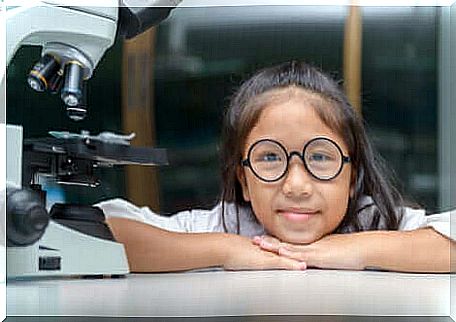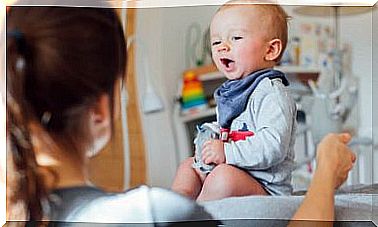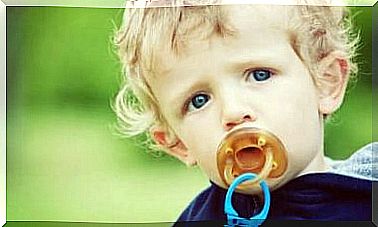How To Stimulate Scientific Thinking In Children – You Are Mom

Stimulating scientific thinking in children has enormous benefits, not only academically, but also in their daily life and personal development.
The development of reasoning and logic will be decisive in helping them to solve the problems they encounter and to adapt to the new situations they are confronted with.
When we talk about scientific thinking, we are not only referring to what is related to science (mathematics, nature, biology, engineering, medicine, geometry), but this thinking is also related to the ability to be autonomous and to solve the problems of everyday life.
What is the point of stimulating scientific thinking in children?
As we have already said, it is very important to stimulate this type of thinking in the youngest. They are in full development and anything that gives them cognitive stimulation is going to be very positive for their academic development and as autonomous people. So we will see what is the use of stimulating scientific thinking in children.

- Improve the learning of problem solving in real situations.
- Increase the child’s ability to observe and analyze what is happening in his environment.
- Improve their reasoning skills and encourage the construction of more complex ideas.
- Work on their capacity for deduction and allow them to learn strategies to give their own solutions.
- Strengthen the child’s relationship with his environment and the way he perceives it.
- Help him build his own learning.
- Improve their perception of spaces and their relationship with the physical environment (forms, parts, everything, etc.).
These are just a few of the benefits for which it is important to stimulate scientific thinking in our children. Thanks to this, they will be able to face and solve difficult situations and they will be able to analyze from different points of view and have a global vision of the world in which they live.
What must be taken into account for an adequate stimulation of scientific thought?
For the development of scientific thought to be adequate, certain essential aspects must be taken into account. We’ll take a look at a few of them below:
- Use scientific thinking in the daily life of the child.
- Use logic to solve complicated situations.
- Provide the skills and techniques necessary for the child to be able to observe and analyze his environment in order to act accordingly.
- Encourage children to try and make mistakes ; they have to try solutions and if they don’t work, they have to change them. Mistake is a learning opportunity and we have to instill it in our children.
Tips for stimulating scientific thinking in children
Scientific thinking helps children make the connection between facts, ideas, and causes and their effects. If we use a few simple practices in our daily life, we will help them develop this thinking, logic, and deduction. Let’s see some tips you can follow to achieve this.
Encourage their curiosity about the world
We need to encourage them to study all the objects around them, to understand how things work and what they are used for. We will let them manipulate the objects and do trial and error to realize the mechanisms that set them in motion.
Since they are small, parents must allow them to handle all objects (which are not dangerous, of course): materials, clothes, toys, objects, etc.
First, through touch and sight, children will determine the differences between objects in terms of colors, shapes and sizes and explore their characteristics and functions. When they are older, we can use some home experiences to be able to analyze the cause and effect relationship.
Asking questions to encourage their interest in things
There are very curious children who ask and touch everything, while others are not so curious. For the latter, we must arouse their interest by asking them questions about the world around them and encouraging them to investigate to find an explanation for everything they do not understand.
Allow them to practice and try to solve the problems they encounter
As long as it is not a danger, we must let them seek solutions independently, following their criteria when problems arise while handling or placing any object. This should always be done under our supervision, patience and guidance.

Use play and imagination
We can offer them simple challenges to solve. We can also start a story and ask them to continue it and explain what happens to their protagonists, how they think, how they react, etc.
Using stories to encourage scientific thinking in children
Stories can be a great tool to encourage scientific thinking in children. First, we will read the story to them, then we will ask them questions to develop their reasoning and understanding.
Later, when they are older, they will probably try to find the answers to their questions, consult and search other books for answers, etc.
Smoothly direct their learning
When a child faces a problem they can’t solve, we won’t give them the solution. We can give them clues or ask them questions that will lead him to the solution through reflection; in this way, they are the ones who will find the solution.
As you can see, it is very important for parents to stimulate scientific thinking in their children. This will help them not only in the academic field, where it will be very important to have it developed, but also for their training as independent people capable of solving the problems they face.
Never forget that we, the parents, are their guides on this learning journey and that with patience, love and work we can make our children great people in every way.









